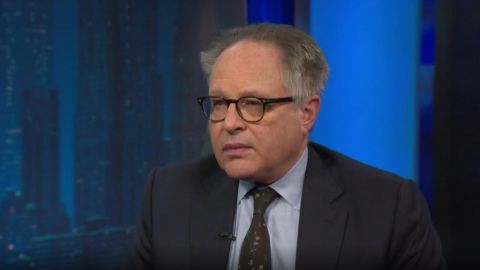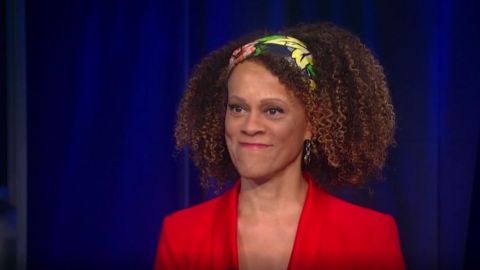Read Transcript EXPAND
CHRISTIANE AMANPOUR: So this is an amazing honor. How do you feel about being jointly awarded the Booker Prize?
BERNARDINE EVARISTO, AUTHOR, “GIRL, WOMAN, OTHER”: Absolutely delighted. I don’t think it’s really sunk in yet. It was a couple of months ago and it is a dream come true and it’s such an honor. And it’s also a game changer in terms of my career. So it’s been amazing.
AMANPOUR: And it’s also because you were jointly awarded with another author, Margaret Atwood, it’s actually put the Booker Prize much more on the map and really forced a discussion about literature, about this — the prize and about the subjects that you’re tackling.
EVARISTO: I think so. And also, you know, Margaret is such an international superstar. I think that you know, winning it has been amplified in a way that perhaps might not have happened if we hadn’t done it jointly. I’m very happy to win it with Margaret. You know, the fact is, we have won it. We haven’t won half a prize. We’ve won it jointly. You know, we’re co-winners. And I think it’s amazing. It’s very hard to win the Booker Prize. Almost nobody wins it. I’m the first black woman to win it. I’m very happy with the way in which the judges made their decision.
AMANPOUR: And the first black British writer to win it.
EVARISTO: The first black woman, the first black British writer. Absolutely.
AMANPOUR: Man or woman.
EVARISTO: That’s right. Yes.
AMANPOUR: I mean, it’s very remarkable.
EVARISTO: In 51 years.
AMANPOUR: You’ve been writing for 40 years. You’ve got eight books under your belt. Why do you think it took this long? And could it have happened before?
EVARISTO: I’m not sure, really, because I think, you know, prizes are basically run by the panels of people, the juries. And it depends on who is the jury in any particular time. And I think this year, the Booker Prize had four women and one man, and I think that makes a difference. And that, in fact, was groundbreaking, because I don’t think they’ve had four women judging the prize before. I think it’s usually the other way around, in fact, or at least historically.
AMANPOUR: This business of the very, very bad, you know, misquote or whatever unintentional or intentional mistake that the BBC correspondent did, which has got a whole load of headlines that the Booker Prize was won by Margaret Atwood and another author. I mean, you did tweet pretty —
EVARISTO: I did.
AMANPOUR: You know, pretty sharply about it. “The BBC described me yesterday as another author apropos the Booker Prize 2019. How quickly and casually they have removed my name from history — first black woman to win it. This is what we’ve always been up against, folks.”
EVARISTO: Well, it was shocking to see that. I mean, I’m not — I don’t really want to have a go at the presenter because, clearly he made a mistake. Maybe he just forgot my name, maybe he hadn’t registered my name. But the reality is that I had in that moment been completely removed from history, my name, and so the achievement was null and void. And I think it’s really important that we draw attention to this because this is what happens with, you know, certain communities in this country, and certainly for black women. Even when we do achieve sometimes, we’re not acknowledged for it. So I felt I had to draw attention to it. And there was so much outrage on social media, which was quite heartwarming, actually, because people were just shocked on my behalf,
About This Episode EXPAND
As House Democrats kick off this week with more congressional evidence, Patrick Gaspard joins the program to discuss the impeachment hearings. Bernardine Evaristo, the first black woman to win the prestigious Booker Prize, tells Christiane about her novel “Girl, Woman, Other.” Nicholas Lemann sits down with Walter Isaacson to offer his take on the ideal of the American Dream.
LEARN MORE


